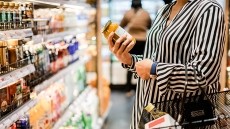Horsemeat found in products from Taco Bell, Birds Eye and Brakes

The third set of results, released on Friday (March 1) brings the total number of tests to 5,430, of which more than 99% continue to show no horse DNA at or above the level of 1%.
The latest products to be affected by the horsemeat scandal included: Birds Eye’s Traditional Spaghetti Bolognese and Beef Lasagne, Taco Bell’s Ground Beef and Brake’s Spicy Beef Skewer.
‘Apologise to all of our customers’
Taco Bell – which operates three outlets in the UK – apologised to its customers. “We would like to apologise to all of our customers, and we can reassure you that we are working hard to ensure that every precaution is being undertaken to guarantee that we are only supplied with products that meet the high standards we demand,” said a spokesman.
The firm added that the products had been traced to a supplier in Europe. “We immediately withdrew ground beef from sale in our restaurants, discontinued purchase of that meat, and contacted the Food Standards Agency with this information,” he added.
Birds Eye said: “We are introducing a new ongoing DNA testing programme that will ensure no minced beef meat can leave our facilities without having first been cleared by DNA testing.”
Brakes apologised to its customers and said it had been “let down” by suppliers.
The latest results mean industry tests have revealed a total of 17 products containing 1% horse DNA, while a further two products were identified through separate tests.
Veterinary drug phenylbutazone
No products which contained horse DNA also tested positive for the veterinary drug phenylbutazone or bute.
The FSA said the initial phase of testing is now almost complete, after it had received results from a range of manufacturers, retailers, caterers, restaurants and wholesalers throughout the UK.
The agency added that industry test results would now be published each quarter. But food businesses would report confirmed cases of gross contamination (above the level of 1%) to the FSA immediately. The agency pledged to publish the information on its website as soon as it is received.
This week the FSA plans to publish the first set of results from local authorities’ UK-wide sampling programme.
British Retail Consortium food director Andrew Opie said: “The reassuring news is that another intensive week of testing has produced no new positive results. And, since this testing programme started in mid-January, just a third of one per cent of products have tested positive.
“But our members won't accept anything less than 100% compliance. We are working with the rest of the supply chain and with government to prevent any incidents in the future.”






























